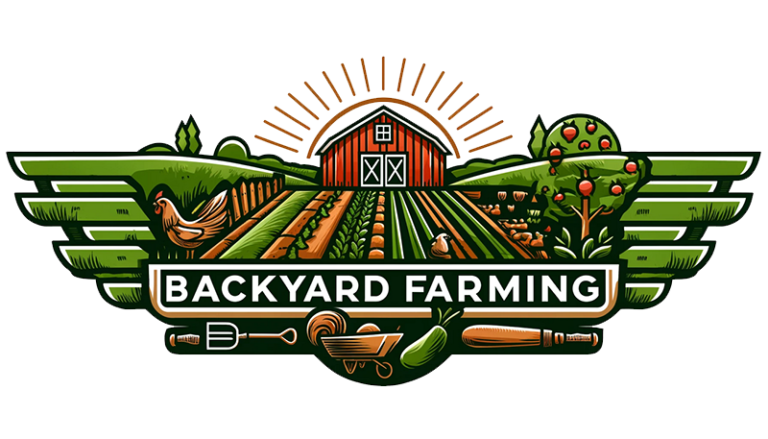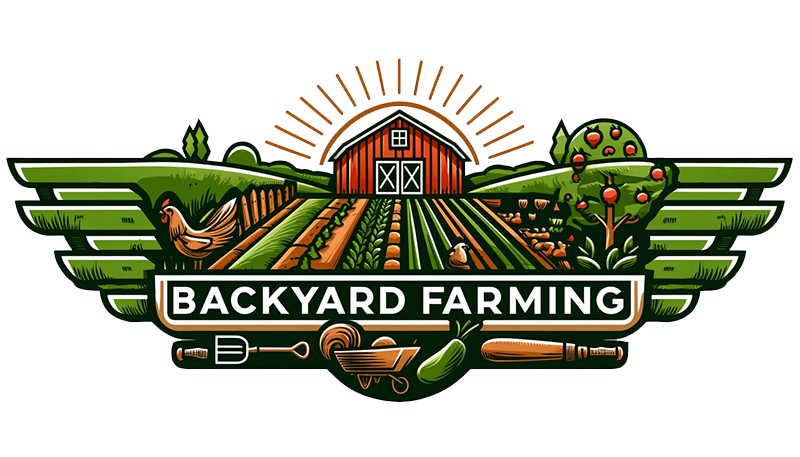At Backyard Farming Life, we explore sustainable practices for turning your backyard into a food-producing farm. In this article, we’ll delve into the world of sustainable backyard irrigation systems, focusing on water conservation, environmental impact, and smart irrigation methods. Join us as we uncover the benefits of sustainable backyard irrigation and learn how to design, implement, and maintain an efficient irrigation system for your backyard garden.
Understanding Sustainable Backyard Irrigation
What is Sustainable Backyard Irrigation?
Sustainable backyard irrigation refers to the practice of using water-conserving methods and tools to supply water to plants, gardens, and landscapes in a sustainable manner. By integrating efficient irrigation techniques, such as rainwater harvesting and drip irrigation, sustainable backyard irrigation aims to minimize water wastage and promote environmental sustainability.
Benefits of Sustainable Backyard Irrigation
Sustainable backyard irrigation offers a multitude of benefits, including:
- Significantly reduced water usage without compromising on the health and appearance of your landscape.
- Promotion of healthier plant growth due to consistent and efficient watering practices.
- Minimized environmental impact by eliminating wasteful irrigation methods that contribute to water scarcity and environmental degradation.
- Contribution to the preservation of local ecosystems and biodiversity by using water resources responsibly.
By optimizing water resources and employing smart irrigation methods, homeowners can contribute to water conservation efforts. This approach helps retain soil moisture and promotes sustainable living practices, benefiting both the environment and the community.
Environmental Impact of Conventional Irrigation vs. Sustainable Backyard Irrigation
Conventional irrigation systems often result in significant water loss and environmental strain due to inefficient distribution and excessive water use. In contrast, sustainable backyard irrigation systems aim to mitigate these challenges by leveraging advanced water-saving technologies and eco-friendly practices, reducing water waste and lowering ecological footprints.
Additionally, conventional irrigation practices contribute to soil degradation and pollution through chemical fertilizers and pesticides, which harm ecosystems and human health. Sustainable backyard irrigation promotes healthier soil quality and reduces the introduction of harmful chemicals into the environment, fostering a more balanced and sustainable ecosystem.
Designing a Sustainable Backyard Irrigation System
Assessing Water Needs for Your Backyard Garden
Assessing the water needs for your backyard garden is a crucial step in designing a sustainable and efficient irrigation system. Factors influencing water requirements include plant types, soil composition, and climate conditions. Understanding these factors helps in tailoring the irrigation system for optimal moisture levels while conserving water resources.
Choosing the Right Irrigation Methods and Tools
Several irrigation methods and tools are available for sustainable backyard gardens:
- Drip Irrigation: Delivers water directly to the root zone of plants, minimizing evaporation and water waste.
- Soaker Hoses: Release water along their entire length, ensuring deep, thorough hydration of plant roots.
- Rainwater Harvesting Systems: Collect and store rainwater for irrigation, reducing reliance on traditional water sources.
By aligning irrigation methods with sustainability principles, homeowners can maximize water conservation and promote healthy plant growth.
Implementing Water-Saving Techniques
Effective water-saving techniques include mulching to reduce evaporation and adjusting irrigation schedules based on weather conditions. Smart irrigation controllers, which monitor moisture levels and adjust watering accordingly, also play a vital role in optimizing water usage.
Components of Sustainable Backyard Irrigation
Rainwater Harvesting Systems
Rainwater harvesting systems are essential for backyard irrigation, allowing homeowners to collect and store rainwater for future use. This reduces dependence on municipal water sources and promotes environmentally conscious gardening.
Drip Irrigation Systems
Drip irrigation systems deliver water directly to the roots of plants, significantly reducing water waste. These systems are cost-effective, customizable, and support sustainable gardening practices.
Mulching and Soil Health
Mulching is a critical practice in sustainable irrigation, helping to conserve soil moisture, suppress weed growth, and improve soil fertility. It supports water-efficient gardening and enhances the overall sustainability of the garden ecosystem.
Maintenance and Troubleshooting
Regular Maintenance Practices
Regular maintenance ensures the ongoing performance of sustainable irrigation systems. Key practices include inspecting for leaks, cleaning filters, and adjusting irrigation settings based on seasonal changes.
Common Issues and Solutions for Sustainable Backyard Irrigation Systems
Common issues like clogged emitters, leaks, and overwatering can be addressed through regular maintenance and the use of smart irrigation controllers. Proactive monitoring helps maintain the sustainability and efficiency of irrigation systems.
Winterizing Your Sustainable Backyard Irrigation System
Winterization involves draining water from the system, insulating pipes, and storing irrigation components to prevent damage from freezing temperatures. Proper winterization protects the system’s components and ensures its longevity.
Best Practices for Managing Water Resources in Backyard Gardening
Companion Planting and Water Conservation
Companion planting enhances water conservation by pairing plant species with complementary water needs. This method also promotes natural pest control and improves soil health, supporting a more balanced and sustainable ecosystem.
Soil Amendments and Water Retention
Organic soil amendments like compost and mulch improve soil structure and water retention. Understanding the relationship between soil structure and water retention is key to creating a resilient garden ecosystem.
Integrated Pest Management and Water Use Efficiency
Integrated pest management (IPM) reduces the need for excessive watering by preventing pest infestations through natural and sustainable methods. IPM promotes water use efficiency and supports the health of the garden ecosystem.
Sustainable backyard irrigation systems offer a transformative approach to water conservation, plant health, and environmental stewardship. By integrating water-saving techniques and smart irrigation methods, homeowners can establish thriving gardens while contributing to a greener future. Embrace sustainable backyard irrigation to benefit both the environment and your backyard farming experience.

